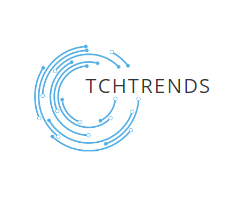Choosing the right Laboratory Information System (LIS) software is a pivotal decision for any laboratory, affecting its efficiency, accuracy, and overall workflow. An optimal LIS can transform laboratory operations, enabling better data management, streamlined processes, and improved patient outcomes. This detailed guide aims to navigate you through the essential factors to consider when selecting the ideal LIS for your laboratory needs.
Understanding Your Laboratory Requirements
Before diving into the vast market of LIS software, it’s crucial to assess your laboratory’s specific needs. Consider the types of tests you perform, the volume of samples processed, and any unique workflow requirements. Are you a clinical lab needing to manage patient data and complex billing? Or a research lab focusing on sample tracking and result analysis? Identifying your lab’s core needs will help narrow down the search to systems that are tailored to your operational requirements.
Assessing System Compatibility and Integration
A key consideration in choosing an LIS is its compatibility with your existing hardware and software infrastructure. The right LIS should seamlessly integrate with your current systems, including electronic health records (EHR), billing software, and any specialized analytical equipment. Integration ensures smooth data flow across systems, reducing manual data entry and the potential for errors. Additionally, consider the scalability of the LIS software. As your laboratory grows and evolves, your LIS should be able to adapt to changing demands without requiring a complete system overhaul.
Evaluating User-Friendliness and Training Support
The usability of an LIS significantly impacts its effectiveness. An intuitive, user-friendly interface reduces the learning curve for staff, promoting efficient adoption and minimizing disruptions to laboratory operations. Look for software that offers customizable workflows and easy access to frequently used functions. Equally important is the level of training and support provided by the LIS vendor. Comprehensive training programs and responsive customer support ensure that your team can maximize the system’s capabilities and quickly resolve any issues that arise.
Considering Data Management and Reporting Capabilities
Effective data management lies at the heart of laboratory operations. The ideal LIS should offer robust data storage, retrieval, and analysis features, ensuring that information is accurate, secure, and easily accessible. Look for systems that provide advanced reporting capabilities, allowing you to generate detailed reports for quality control, regulatory compliance, and operational efficiency. Additionally, consider the system’s ability to handle electronic data interchange (EDI) with external partners, facilitating smooth information exchange with other healthcare providers and institutions.
Prioritizing Security and Regulatory Compliance
In an era where data breaches are increasingly common, security is paramount. Ensure that the LIS software complies with industry standards and regulations, such as HIPAA in the United States, to protect patient information and laboratory data. The system should offer strong data encryption, user authentication protocols, and audit trails to monitor data access and modifications. Additionally, verify that the LIS can support compliance with relevant laboratory accreditation requirements, ensuring that your operations meet the highest quality standards.
Analyzing Total Cost of Ownership
When evaluating LIS options, consider not only the initial purchase price but the total cost of ownership. This includes ongoing costs for system maintenance, updates, and support services. Some vendors offer subscription-based models that include these services in a monthly fee, while others may charge additional fees for upgrades and support. Assessing the total cost of ownership provides a clearer picture of the long-term investment in an LIS and helps avoid unexpected expenses down the line.
Reviewing Vendor Reputation and Customer Feedback
Finally, take the time to research potential LIS vendors, focusing on their reputation in the industry and feedback from current users. Look for testimonials, case studies, and independent reviews to gauge the reliability and performance of the system. A vendor with a strong track record of success and positive customer feedback is more likely to provide high-quality LIS and responsive support.
Conclusion
Selecting the right laboratory information system software is a critical decision that can significantly impact the efficiency and effectiveness of laboratory operations. By carefully considering your laboratory’s specific needs, system compatibility, user-friendliness, data management capabilities, security, regulatory compliance, total cost of ownership, and vendor reputation, you can choose an LIS that supports your workflow, enhances data integrity, and facilitates high-quality patient care. Remember, the best LIS is one that aligns with your laboratory’s goals and evolves with your changing needs, ensuring sustained operational excellence.

